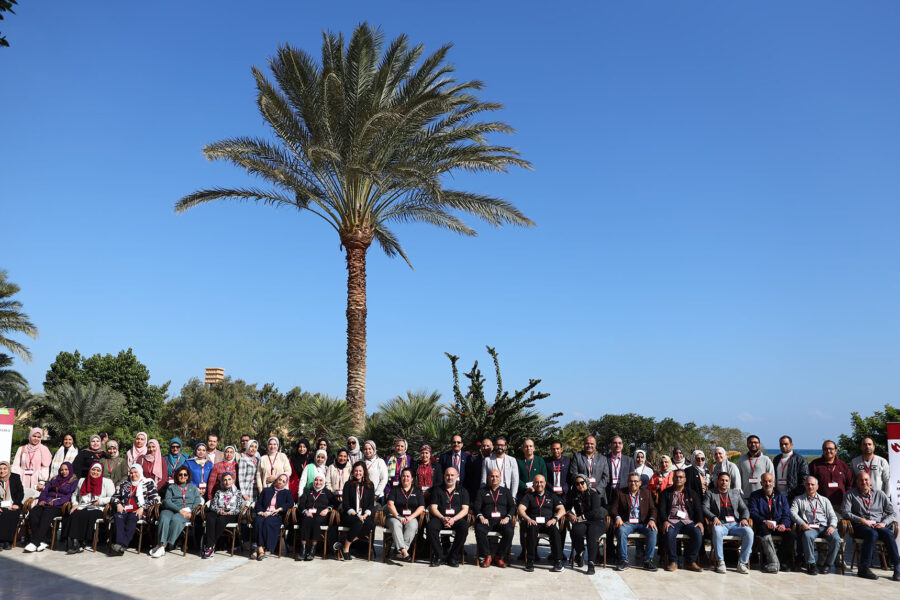The UNMC College of Public Health’s Center for Global Health and Development recently concluded a three day, in-person training workshop for more than 50 lab professionals in Hurghada, Egypt.
With help from national and international partners and support from the Global Center for Health Security, the workshop engaged participants from 19 major human and animal diagnostic laboratories from across Egypt.
The training was the first of its kind in Egypt, the Middle East and North Africa (MENA) region and Africa that focused on enhancing the biological risk management capacities of private diagnostic human and animal laboratories.
Funded by the U.S. Department of State since 2019, this unique project is part of a strategic plan to enhance health security capacities in Egypt and the MENA region through multi-tiered engagements with the government and private sector. These engagements include legal frameworks, technical support, capacity building and mentoring programs.
Ali S. Khan, MD, MPH, dean of the UNMC College of Public Health, emphasized the importance of this initiative.
“In support of the U.S. State Department health diplomacy initiatives, UNMC is continuing to expand its efforts to develop the capability of nations in the Middle East and North Africa to better prevent and control infectious diseases, including improving biosafety and biosecurity laboratory practices,” Dr. Khan said.
Initiatives and training workshops like these also benefit UNMC by strengthening its global presence and improving health security by establishing relationships, expanding its network, advancing knowledge and enhancing practice.
Jane Meza, PhD, associate vice chancellor for global engagement, agreed, explaining that “by emphasizing training, this program enhances the skillset of these institutions to safeguard public health and represents the UNMC’s role in addressing the complex challenges of today’s interconnected world.”
Wael ElRayes, MD, PhD, co-director of the UNMC Center for Global Health and Development and the principal investigator for this project, said that “advancing biological risk management for private diagnostic labs is fundamental to strengthening national capacities and improving lab practices, which contributes to enhanced global health security.”
The in-person training represents the second phase of a more comprehensive project and follows three months of an online capacity-building program. This initiative will continue progressing with five similar training workshops scheduled throughout 2024 and 2025.

Love this! Great work all.